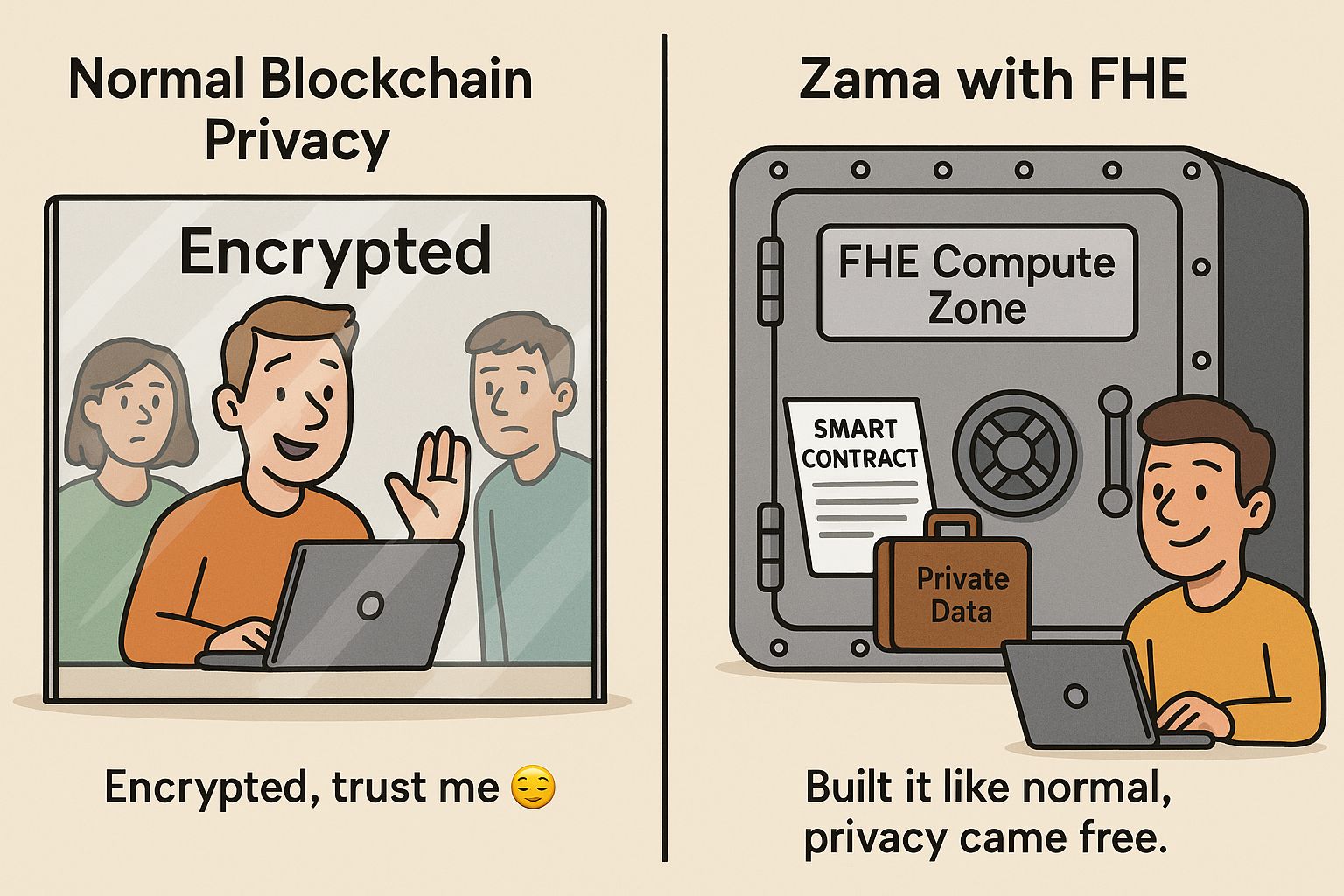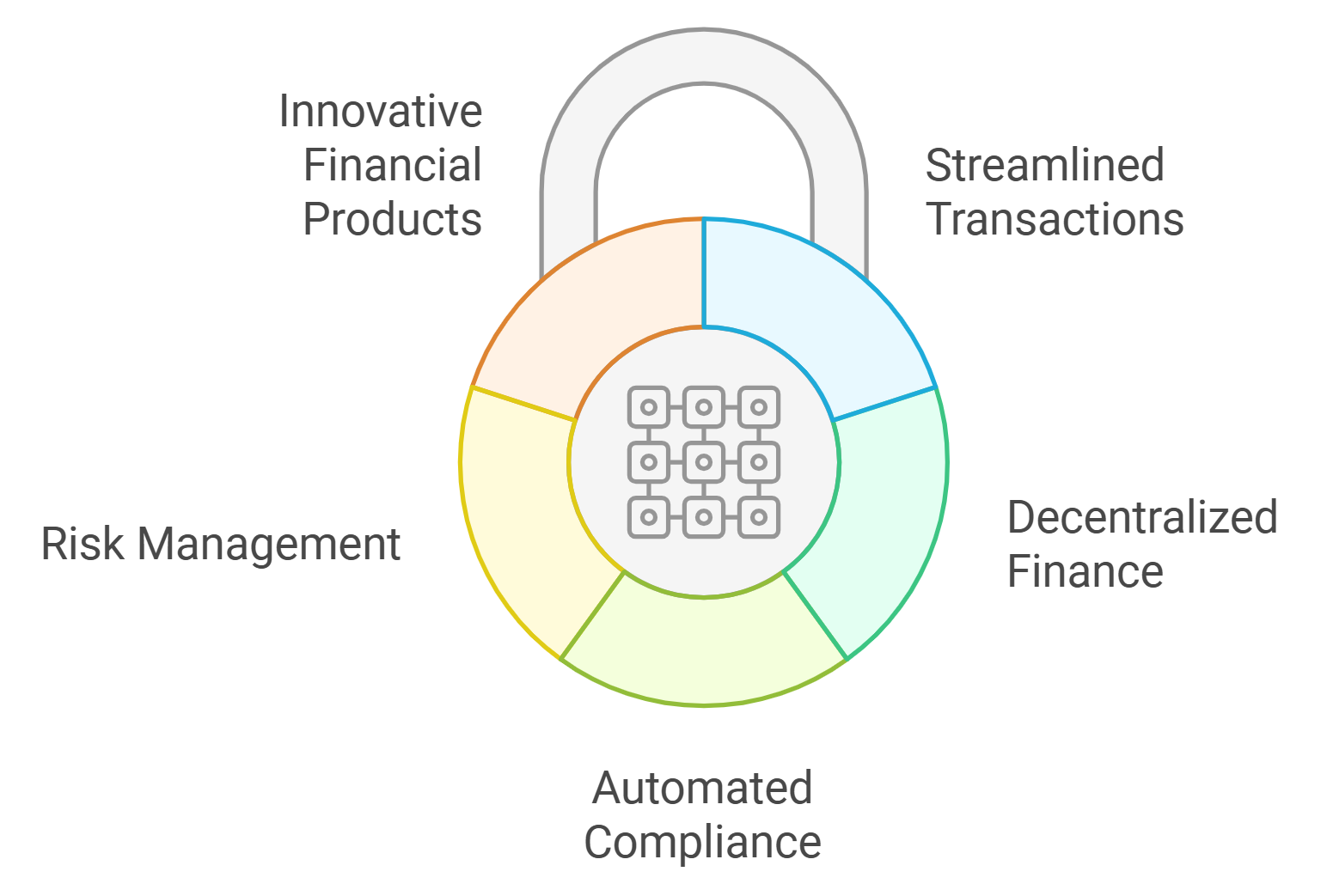
Public blockchains have long been celebrated for their transparency and immutability, but these very strengths can become weaknesses when privacy is paramount. As decentralized applications (dApps) expand into sensitive domains such as finance, healthcare, and identity management, the demand for robust data confidentiality is louder than ever. Fully Homomorphic Encryption (FHE) emerges as a game-changer, enabling smart contracts to process encrypted data without ever exposing raw information, even during computation.

What Makes Fully Homomorphic Encryption Revolutionary?
At its core, FHE is a cryptographic technique that allows computations to be performed directly on encrypted inputs. The result? Outputs remain encrypted and only authorized parties can decrypt them. This means that even if every node in a blockchain network processes your transaction, none can see your underlying data.
This is particularly significant for public blockchains, where all transactions and contract states are inherently visible by default. With FHE, we finally have the tools to introduce programmable privacy, letting developers build confidential smart contracts without sacrificing decentralization or composability.
Zama’s fhEVM: Bringing FHE to Ethereum Smart Contracts
A leading example of FHE in action is Zama’s fhEVM. This open-source protocol extends the Ethereum Virtual Machine (EVM) with native support for encrypted computations. With fhEVM, Solidity developers can leverage new data types and functions designed specifically for confidential operations, no advanced cryptography background required.
The implications are profound: developers can now create applications where user balances, voting choices, or even business logic stay private on-chain. For instance, consider an insurance payout calculation or risk assessment performed entirely on encrypted datasets, the contract executes flawlessly while the underlying personal or financial details remain shielded from both validators and adversaries alike.
5 Real-World Use Cases for FHE in Blockchain
-

Confidential DeFi Transactions: Platforms like Zama’s fhEVM enable users to perform decentralized finance (DeFi) operations—such as lending, borrowing, and trading—on encrypted data, ensuring transaction amounts and strategies remain private and protected from front-running.
-

Private On-Chain Voting for DAOs: Fully Homomorphic Encryption allows decentralized autonomous organizations (DAOs) to conduct votes where each member’s choice is kept confidential, preventing vote buying and coercion. Zama’s fhEVM is being used to build such privacy-preserving voting mechanisms.
-

Secure On-Chain Identity and Health Data Management: With FHE, sensitive personal data—like health records or identity credentials—can be stored and processed on public blockchains without exposing private details, supporting GDPR compliance. Projects leveraging fhEVM are pioneering these privacy-first data management solutions.
-

Confidential Risk Assessment and Insurance Payouts: Insurance and financial service providers can use FHE-enabled smart contracts to assess risk and calculate payouts on encrypted customer data, ensuring client confidentiality throughout the process. Zama’s fhEVM showcases these capabilities for confidential insurance workflows.
-

Private Cross-Chain Asset Transfers: FHE allows encrypted data to be transferred and processed across multiple blockchain networks, enabling secure and private cross-chain transactions. Zama’s fhEVM supports composability and interoperability for confidential asset transfers between chains.
Key Features of FHE-Enabled Smart Contracts
The integration of fully homomorphic encryption into blockchain platforms unlocks several transformative features:
- End-to-End Encryption: Data remains securely encrypted throughout its entire lifecycle, from input through processing to output, making unauthorized access virtually impossible.
- Confidential DeFi: Users can participate in decentralized finance activities such as trading or lending without revealing transaction amounts or strategies, reducing risks like front-running and enabling true financial privacy.
- Private DAO Voting: Decentralized organizations can conduct confidential votes where individual preferences are never exposed on-chain, protecting against coercion and vote buying.
- Composable Privacy: Smart contracts using FHE can interact with one another while maintaining encrypted states, preserving the modularity that makes DeFi so powerful.
- Cross-Chain Interoperability: By leveraging FHE-enabled protocols like fhEVM, confidential transactions and contract logic can span multiple networks without leaking sensitive information.
The Current Landscape: Adoption and Challenges
The promise of FHE smart contracts isn’t just theoretical, it’s already being realized in live testnets and developer tools. Projects like Zama’s fhEVM are lowering barriers for mainstream adoption by abstracting away cryptographic complexity while maintaining security best practices. If you’re interested in deeper technical details about how this works under the hood, or practical guides to getting started, you’ll find comprehensive resources at our dedicated pages such as How Fully Homomorphic Encryption (FHE) Enables Truly Confidential Smart Contracts on Public Blockchains.
Inevitably, there are challenges ahead. FHE computations require more processing power compared to traditional methods; optimizing these schemes for practical blockchain performance is an ongoing area of research. Additionally, secure key management becomes even more critical when dealing with persistent encrypted states across distributed systems. Nevertheless, with rapid progress in cryptographic engineering, and the growing appetite for privacy-first solutions, the future looks promising.
Developers and enterprises are already experimenting with FHEVM testnets, exploring confidential DeFi, encrypted stablecoins, and privacy-preserving applications that were previously infeasible on transparent blockchains. The ability to perform complex computations, such as insurance payouts, compliance checks, or even salary calculations, on encrypted data opens the door to a new class of programmable privacy solutions. These advances are not just technical milestones; they are fundamentally reshaping what’s possible for blockchain-based business models and user experiences.
Emerging Use Cases and What’s Next
Let’s take a closer look at some of the most compelling use cases that only fully homomorphic encryption can unlock:
Five FHE-Powered Blockchain Use Cases
-

Confidential DeFi Transactions: FHE enables confidential smart contracts on platforms like Zama’s fhEVM, allowing users to perform swaps, lending, and risk assessments without exposing transaction details or strategies. This protects against front-running and ensures financial privacy in decentralized finance.
-

Private DAO Voting: Using FHE, DAOs can conduct on-chain voting where individual ballots remain encrypted and private. Solutions like Zama’s fhEVM allow for verifiable yet confidential voting, preventing vote buying and coercion while maintaining transparency of aggregated results.
-

Encrypted Payroll Processing: FHE allows organizations to process payroll directly on public blockchains while keeping salary amounts and employee data encrypted. This ensures privacy for sensitive financial information and regulatory compliance, as demonstrated in FHEVM documentation and use cases.
-

Secure On-Chain Identity Management: FHE-powered smart contracts can manage personal data, such as identity credentials or health records, on-chain while keeping all sensitive information encrypted. This approach supports compliance with privacy regulations like GDPR and enables secure, user-controlled identity systems.
-

Privacy Composability Between Smart Contracts: With FHE, smart contracts can interact and compose with one another using encrypted states and inputs. Zama’s fhEVM supports this feature, enabling modular blockchain applications where data privacy is preserved across contract interactions.
Each of these scenarios leverages fully homomorphic encryption blockchain technology to keep sensitive data out of public view while preserving the integrity and auditability that make blockchains trustworthy. For example, private DAO voting can now be conducted without fear of vote manipulation or exposure. Confidential DeFi lets traders operate without revealing positions or strategies, radically changing risk management and competitive dynamics in decentralized markets.
The Road Ahead: Scalability and Ecosystem Growth
The next frontier for FHE smart contracts is scalability. Research teams are focused on reducing computational overhead through optimized cryptographic primitives and hardware acceleration. As these improvements roll out, expect to see broader adoption across EVM-compatible blockchains, and eventually beyond Ethereum itself.
Community engagement is also critical. Open-source initiatives like Zama’s fhEVM empower developers to experiment freely without deep cryptographic expertise. This democratization accelerates innovation in privacy composability blockchain protocols and encourages new entrants into the ecosystem.
Getting Started with FHE Smart Contracts
If you’re ready to explore confidential smart contracts firsthand, now is an ideal time. Start by joining public testnets, reviewing open-source Solidity libraries (like zama-ai/fhevm-solidity), or contributing to community discussions around best practices for secure key management. For deeper technical insights or step-by-step guides tailored for both developers and decision-makers, browse our resource hub at How Fully Homomorphic Encryption (FHE) Enables Truly Confidential Smart Contracts on Public Blockchains.
The convergence of programmable privacy and composable smart contract logic marks a pivotal moment in blockchain evolution. By embracing fully homomorphic encryption today, you’re not just protecting user data, you’re shaping the future landscape of digital trust.






